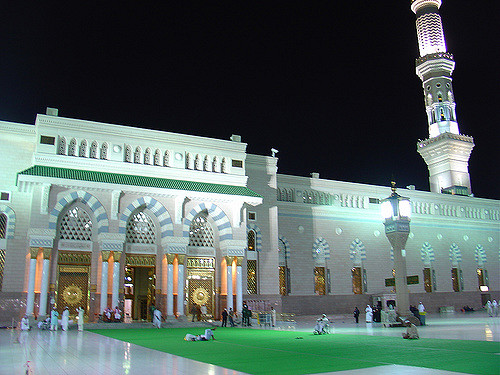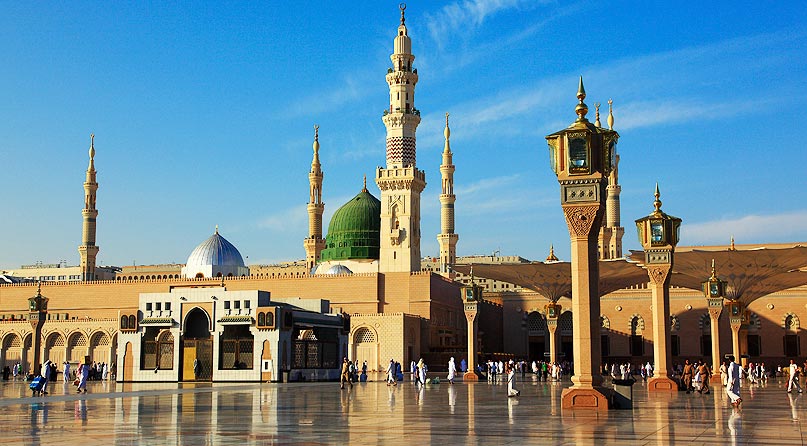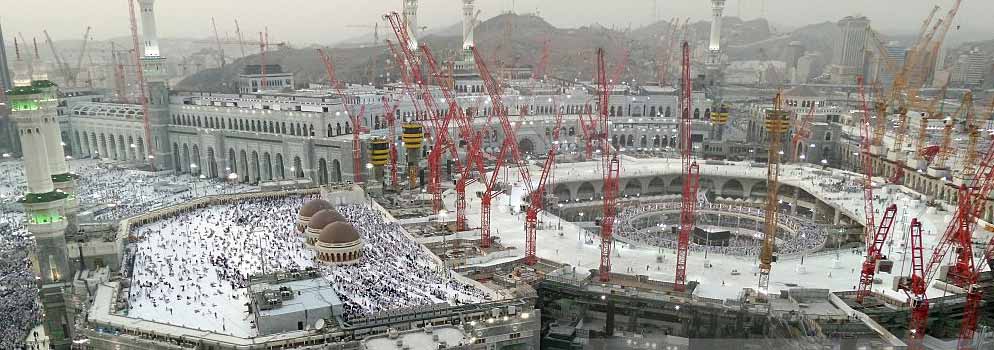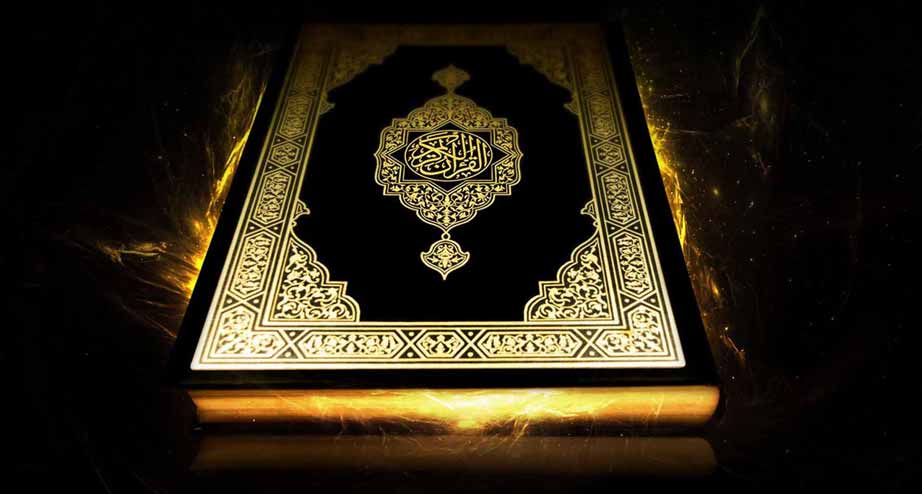The status of Hajj in Islam; Allah, the Exalted, ordained it in the ninth year after Hijrah (the Prophet’s sallallaahu `alayhi wa sallam ( may Allaah exalt his mention ) migration from Makkah to Madeenah), according to the preponderant opinion.
Allah Almighty Says (what means): {And [due] to Allah from the people is a pilgrimage to the House—for whoever is able to find thereto a way. But whoever disbelieves—then, indeed, Allah is free from need of the worlds.} [Quran 3:97]
Hajj is obligatory once in a lifetime on every sane Muslim who has reached the age of puberty and is physically and financially capable of performing it. It is one of the best deeds that draw the person closer to Allah, the Exalted. There are many authentic Ahadeeth that were narrated concerning the virtues of Hajj, and we will mention some of them.
It was narrated on the authority of Abu Hurayrah, may Allah be pleased with him, that the Prophet sallallaahu `alayhi wa sallam ( may Allaah exalt his mention ) was asked: “What is the best deed?” He said: “To believe in Allah and His Messenger.” He was asked, “Then what?” He answered: “Performing Jihad in the path of Allah.” He was asked, “Then what?” He said: “(Performing an) acceptable Hajj.” [Al-Bukhaari and Muslim]
It was narrated that ‘Aa’ishah, may Allah be pleased with her, said, “I said, ‘O Messenger of Allah! We find Jihad to be the best of deeds. May we (i.e. women) participate in it?’ He replied: ‘The best Jihad for you (i.e. women) is an accepted Hajj.’” [Al-Bukhaari and Muslim]
Abu Hurayrah, may Allah be pleased with him, narrated that the Prophet sallallaahu `alayhi wa sallam ( may Allaah exalt his mention ) said: “The ‘Umrah to the following ‘Umrah expiates the sins committed in between them, and there is no reward for an accepted Hajj except Paradise.” [Al-Bukhaari and Muslim] The accepted Hajj is the one in which one does not commit sins.
It was narrated on the authority of Abu Hurayrah, may Allah be pleased with him, that he heard the Prophet sallallaahu `alayhi wa sallam ( may Allaah exalt his mention ) saying: “Whoever performs Hajj for the sake of Allah during which he neither has sexual relations (with his wife) nor commits sins will return (after Hajj, as sinless) as he was on the very day his mother gave birth to him.” [Al-Bukhaari and Muslim]
After learning about the great reward of Hajj, in addition to it being one of the pillars of Islam, no Muslim should miss out on it; rather, he should hasten to perform it as soon as he is capable of doing so. This is because one does not know when he will die, and he should take advantage of his life before his death. We seek the Help of Allah to enable us to do good.
The Pilgrims’ Chant (The Talbiyah):
“Labbayka Allahumma labbayk, labbayka la shareeka laka labbayk. Innalhamda wanni‘mata laka walmulk, laa shareeka lak.” (O Allah, here I am, at Your service. There is no partner to be associated with You. Praise, grace and sovereignty are Yours. There is no partner to be associated with You).
Allah, the Exalted, Says (what means): {And proclaim to the people the Hajj [pilgrimage]; they will come to you on foot and on every lean camel; they will come from every distant pass.} [Quran 22: 27]
The Scholars of Tafseer (interpretation of the Quran) said that when Ibrahim, may Allah Exalt his mention, completed building the Sacred House, Allah Almighty ordered him to call the people to Hajj. Ibrahim, may Allah Exalt his mention, said, “O Lord, my voice will not reach them?” Allah Almighty Says, “Call them, and I will make it reach them.” So Ibrahim, may Allah exalt his mention, ascended the mountain of Abu Qubays and said, “O mankind! Your Lord has established a House, so come for pilgrimage to it.” It is said that the mountains lowered themselves so that his voice would reach all the corners of the earth, and those who were still in their mothers’ wombs and their fathers’ loins would hear the call. The response came from everything that heard him, from stones, trees, and those for whom Allah has decreed to make Hajj, until the Day of Resurrection: “We answer your call, O Allah, we answer your call.”
“Come to you on foot,” means that they will walk to perform the Hajj, as Ibrahim and Ismaa‘eel, may Allah exalt their mention, performed pilgrimage walking on foot. Also, Al-Hasan ibn ‘Ali performed the Hajj twenty-five times on foot while there were camels with him. Imam Ahmad ibn Hanbal may Allaah have mercy upon him performed Hajj on foot twice.
A Story and a Lesson Learned:
When Ja‘far As-Saadiq may Allaah have mercy upon him set out for Hajj and intended to recite the Talbiyah, the color of his face changed, and his body trembled. It was said to him, “What is wrong with you?” He said, “I intend to say the Talbiyah, but I fear I would hear something else (other than the response to the Talbiyah).”
‘Abdullah ibn Al-Jallaa’ said:
I was in Thul-Hulayfah and I saw a young man who wanted to assume the state of Ihram, so he said: “O Allah, I want to say ‘Labbayka Allahumma labbayk’ (O Allah, here I am at Your service), but I am afraid that You answer me by saying that my Talbiyah is not accepted.” The man kept repeating this while shedding tears, then he said, “O Allah, I respond to Your call.” He said this with a prolonged pronunciation, and he died on the spot may Allaah have mercy upon him.
When Al-Fudhayl ibn ‘Iyaadh may Allaah have mercy upon him stood at ‘Arafah while other pilgrims were invoking Allah Almighty, he was crying like a bereaved mother who lost her child and could not even supplicate Allah Almighty. When it was almost sunset, he clutched at his beard and raised his sight to the sky and said, “O Allah, how ashamed I am of my sins before You, even if You have forgiven me!”
The Story of Building the Sacred House
Ibrahim, may Allah exalt his mention, took Ismaa‘eel and his mother Hajar and went to the place of the Sacred House. When they reached Makkah, he made her sit under a tree at a place near Zam Zam where neither people nor water could be found. He left them there and left a water-skin containing some water and a bag of dates with them and went away. Ismaa‘eel’s mother followed him and asked: “Are you going to leave us in this valley where nobody lives?” She repeated the question but he ignored her, so she asked: “Did Allah order you to do so?”
He answered: “Yes.” She said, ‘Then He will not let us go to waste.’ She returned to her place and Ibrahim went away until he reached a place where they could not see him; he faced the place of the House, raised his hands, and supplicated Allah saying: {Our Lord, I have settled some of my descendants in an uncultivated valley near Your Sacred House, our Lord, that they may establish prayer. So make hearts among the people incline toward them and provide for them from the fruits that they might be grateful.} [Quran 14:37]
Hajar drank from the water-skin and suckled her child until all the water was used up and she and her son became thirsty. He was writhing with thirst, so she left him, hate to see him in that state. She ascended Mount Safa, which was the closest mountain to where she was, and looked around, hoping to see somebody, but in vain. She came down to the valley and ran in a state of exhaustion until she reached Mount Marwa. She ascended it and looked around, hoping to see somebody, but in vain. She ran to and fro (between the two mountains) seven times. Ibn ‘Abbas, may Allah be pleased with him, said that the Prophet Sallallahu`Alayhi wa Sallam ( may Allaah exalt his mention ) said: “That is why people perform Sa‘y between them (meaning As-Safa and Al-Marwah).”
When she was near Al-Marwah, she heard a voice, so she kept silent to make sure of it. It was the angel Jibreel (Gabriel), may Allah exalt his mention, and he hit the earth with his heel or with his wing, so water gushed out. Ismaa‘eel’s mother was astonished and collected the sand around it to make a basin. She drank from the water and suckled her child, and the angel said to her: “Do not be afraid of being neglected, for this is the House of Allah that will be built by this boy and his father, and Allah never neglects His people.’ [Al-Bukhaari: Kitaab Al-Anbiyaa’]
How great is reliance on Allah, and how beautiful is submission to the Orders of Allah? Hajar was subjected to a hard plight, but her trust in Allah was not shaken, and then Allah sent the solution and the water of Zam Zam gushed out, so Hajar, her son Ismaa‘eel, and his descendants became a large Ummah (community), and the seal of the Prophets and Messengers (Prophet Muhammad Sallallahu `Alayhi Wa Sallam ( may Allaah exalt his mention )) was from his descendants. This small blessed family became the core of life and the origin of prosperity in this place. Days passed and Allah ordered Ibrahim to build the Sacred House. So, Allah responded to Ibrahim’s supplication and the hearts of people became inclined to this House. The Sacred House continued to be under the protection of Allah and continued to be treated with glorification, honor, and respect throughout all times and generations.
Umrah Packages | Hajj Packages | Ramadan Umrah Packages | December Umrah Packages
Source: islamweb.net



